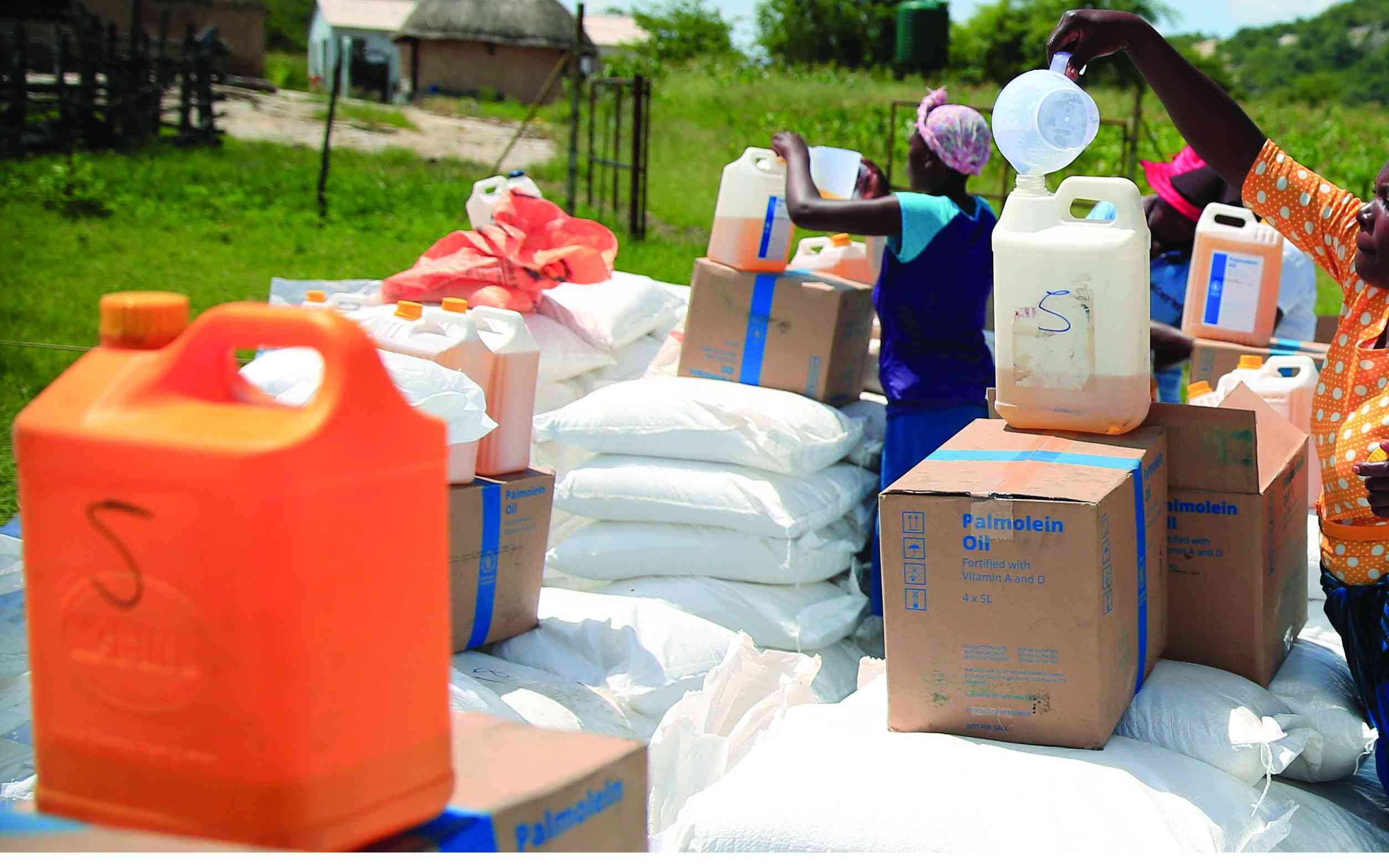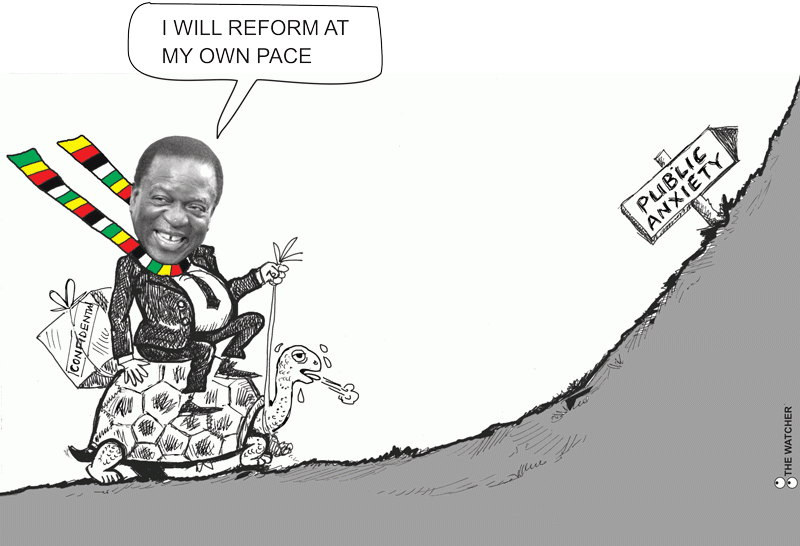
Dear Mr President,
In the early stages of your first term in office after the 2018 elections, you appointed, Your Excellency, as deputy minister, one brother I have known for a long time.
It so happened that, just after his appointment, we bumped into each other at a local hotel where the non-profit organisation I lead was holding a training workshop.
Because we have tended to get along well despite his sometimes caustic and polarised approach to political debate, it was in order for me to spring up from my chair at lunch to congratulate him on his new appointment.
We hugged genuinely. After that, he pointed a courteously naughty finger at me and said: “But you, you must leave my president alone! I see you are getting good money from your masters of regime change for your pains”.
People around laughed — predictably and not cynically.
For three or so weeks on the trot, I had written several opinion articles critical of you and your government.
Issues including corruption and the half-hearted fight against it, questionable deals, dodgy characters surrounding you and such other stuff.
- Corruption Watch: Get scared, 2023 is coming
- Corruption Watch: Get scared, 2023 is coming
- Letters: Ensuring Africa’s food security through availability of quality seeds
- Is military's involvement in politics compatible with democracy?
Keep Reading
I responded to his lighthearted accusations by telling him that he had no monopoly over you because you are the national president and that our work against corruption could not amount to regime change.
I also humbly pointed out to him that the greatest sin that we could ever commit as Zimbabweans was to neglect our watchdog role since, by their very nature, politicians and governments need monitoring and progressive criticism.
Those responses capture the spirit and mode of what I want to talk to you about here, Your Excellency. And what I want to talk about is the Private Voluntary Organisations (PVO) Amendment Bill.
More broadly, this regrettable tendency to see us in the NGO sector as enemies as what successive Zanu PF governments have been doing.
From the onset, I would like to state that there is nothing wrong with legislating on NGOs.
This is international practice. In any case, it is a truism to talk about this because, right from that stage when they make their constitutions or deeds of trust, NGOs are acknowledging their subservience to the law and offering themselves for legislation.
What makes the difference is the motive and form of legislation, but more about this later.
When you sent the PVO Bill back to parliament last year — significantly during election time — that lit up a hope in some of us, even though we remained guarded still.
Maybe the president has decided that it is not worth the salt keeping on with the bill. That was the hope.
A timid optimism that was reinforced a bit by the fact that the United Nations (UN) had also urged you to drop the bill.
The UN has its weaknesses, yes, but we are a member and we are expected to, at least, listen to what it says, especially when it resonates with the popular sentiment among your own people, the people you lead.
It did not take time, of course, before we ricocheted into panic mode.
When the 10th Parliament was opened after the 2023 general elections, boom, the PVO Bill was back on the legislative agenda.
The bill retained its old self in almost every sense, but widened the dragnet to include just about everything with a semblance to an NGO.
We hear that the bill will be fast-tracked in parliament. It seems, therefore, that we are headed for a long winter.
Then this latest shocker from Public Service and Social Welfare minister July Moyo, whose ministry is supposed to administer the law, when he told soldiers and other servicemen at the Defence College that NGOs are a threat to national security.
Frankly speaking, people in the NGO sector detest the bill. Even its newest version does not reflect our will and we think it will unnecessarily and unconstitutionally restrict our space.
But that is not what I really want to talk about.
Rather, my worry is around the misconception of NGOs as enemies of the State, especially given the growing currency of the talk around the impending PVO Act that is targeting us, the people working in the NGO sector.
It reflects an age-old, albeit incorrect, attitude towards NGOs. Since the mid-tolate 90s — but more acutely, from the turn of the millennium — we have grown accustomed to this narrative that NGOs are bad because they are there to cause political mayhem and regime change.
We have seen the closure and attempted shut down of NGOs over the years. We have seen the persecution of people in the NGO sector.
And, now, we are witnessing game-changing amendments to the old PVO Act.
Your government says the amendments are in line with the recommendations of the Financial Action Taskforce, as they relate to the financing of terrorism by non-profit organisations.
There is no denying that, potentially and actually, non-profits are usable to transmit terrorism-related funds.
But, in our case, it would seem that the bill is going beyond countering terrorism.
Rather it is countering NGOs per se because the provisions of the bill go well beyond mere terrorism and its financing.
That is one major reason why we are fretting so much, especially as it is reinforced by politicians who label us threats to national security.
Despite such accusations against us over the years, you may want to note, Your Excellency, that no evidence has ever been adduced to prove that NGOs working in Zimbabwe are being used as conduits of terrorist financing. Nor, in the Zimbabwean case, has it ever been proved that there are terrorists operating here, or likely to operate here.
Needless to say, your ever alert intelligence eyes and ears are yet to provide proof that there are NGOs that are getting funding to support their preferred political parties, even though this is not to say they are non-existent.
Let me put local and international NGOs in two broad categories.
Those that provide humanitarian assistance and those that play a watchdog role. For successive Zanu PF governments, it does not matter which category. One is seen as bad as the next.
But one thing I beseech you to appreciate is that there is no government that will ever function well without the countervailing effect of watchdogs.
Never mind the fact that you will disagree with their methods or views.
You need them to keep you in check and for self-growth.
You need them to strengthen your governance, so that what you do will bring benefits to those that you rule, and that you leave a good legacy for yourself.
Similarly, you cannot dispense of humanitarian NGOs.
Government on its own cannot adequately respond to the complex humanitarian needs we face. For me, the NGO sector has become the Fourth Estate that you cannot easily dispense with.
I urge you in conclusion, Your Excellency, to rethink your relationship with NGOs.
To constructively engage them just as you do with other agencies with contesting views.
To foster mutual trust and respect. And to do that, kindly by rethinking the PVO Bill so that, in the final scheme of things, you either abandon it completely or listen to your people so that the law reflects the true aspirations of not only the NGOs, but the citizens of Zimbabwe.
Above all, please Your Excellency, accept criticism for it will build you too.
Your fellow citizen, TAWANDA MAJONI
- NB: This is a weekly column and we would like to invite fellow citizens to contribute and be part of this thought leadership and nation building initiative. You can e-mail your contributions to [email protected]











